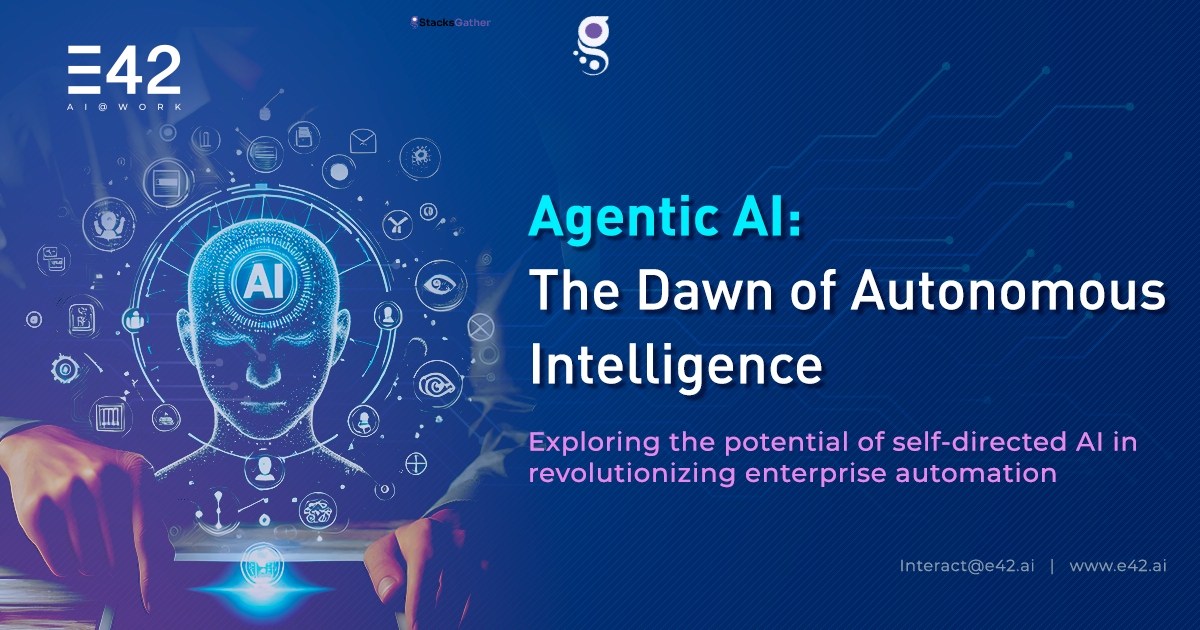Agentic AI: The Future of Autonomous Intelligence
Artificial intelligence (AI) continues to transform various sectors, offering unprecedented capabilities and efficiencies. Among the most intriguing developments in AI is the concept of "Agentic AI" — systems that possess autonomous decision-making abilities. This article delves into the nature of Agentic AI, its evolution, key features, applications, ethical considerations, challenges, and future prospects.
Techno solution

Table of Contents
- Introduction
- Understanding Agentic AI
- Historical Context and Evolution
- Key Features of Agentic AI
- Applications of Agentic AI
- Healthcare
- Finance
- Manufacturing
- Education
- Ethical and Societal Implications
- Challenges and Limitations
- Future Prospects and Research Directions
- Conclusion
- References
1. Introduction
Artificial intelligence (AI) continues to transform various sectors, offering unprecedented capabilities and efficiencies. Among the most intriguing developments in AI is the concept of "Agentic AI" — systems that possess autonomous decision-making abilities. This article delves into the nature of Agentic AI, its evolution, key features, applications, ethical considerations, challenges, and future prospects.
2. Understanding Agentic AI
Agentic AI refers to AI systems designed to operate with a high degree of autonomy. These systems can make decisions, learn from their environments, and adapt to new situations without direct human intervention. Unlike traditional AI, which typically follows predefined rules and algorithms, Agentic AI is capable of independent action, making it a powerful tool in various domains.
3. Historical Context and Evolution
The journey towards Agentic AI began with early AI research in the mid-20th century, focusing on creating systems that could perform specific tasks. Over time, advancements in machine learning, neural networks, and deep learning have paved the way for more sophisticated and autonomous AI systems. The development of Agentic AI is a culmination of these efforts, representing the next stage in AI evolution.
4. Key Features of Agentic AI
Agentic AI is characterized by several key features:
- Autonomy: The ability to operate independently without human intervention.
- Adaptability: The capacity to learn from the environment and improve over time.
- Decision-Making: The capability to analyze data and make informed decisions.
- Goal-Oriented: Designed to achieve specific objectives through self-directed actions.
- Context-Awareness: Understanding and responding appropriately to contextual information.
5. Applications of Agentic AI
Healthcare
In healthcare, Agentic AI can revolutionize diagnostics, treatment planning, and patient care. Autonomous AI systems can analyze medical data, suggest treatment options, and even perform certain medical procedures, improving efficiency and patient outcomes.
Finance
Agentic AI is transforming the financial sector by enhancing risk management, fraud detection, and trading strategies. These AI systems can autonomously monitor market conditions, execute trades, and manage investment portfolios, providing significant advantages over traditional methods.
Manufacturing
In manufacturing, Agentic AI enables smart factories where machines can autonomously manage production processes, optimize supply chains, and predict maintenance needs. This leads to increased productivity, reduced downtime, and cost savings.
Education
Agentic AI can personalize education by adapting learning materials to individual student needs, providing real-time feedback, and automating administrative tasks. This allows educators to focus more on teaching and less on administrative burdens.
6. Ethical and Societal Implications
The rise of Agentic AI brings several ethical and societal challenges:
- Job Displacement: Automation may lead to job losses in certain sectors, necessitating new policies for workforce transition.
- Bias and Fairness: Ensuring AI systems do not perpetuate or amplify existing biases is crucial for fairness and equity.
- Accountability: Determining responsibility for AI-driven decisions, especially in critical applications like healthcare and finance, poses significant challenges.
- Privacy: Protecting personal data in autonomous AI systems is essential to maintain user trust and comply with regulations.
7. Challenges and Limitations
Despite its potential, Agentic AI faces several challenges:
- Technical Complexity: Developing truly autonomous systems requires advanced algorithms and significant computational resources.
- Integration: Seamlessly integrating Agentic AI into existing systems and workflows can be difficult.
- Regulation: Creating regulatory frameworks that balance innovation and safety is essential but challenging.
- Ethical Considerations: Addressing the ethical implications of autonomous decision-making requires ongoing research and dialogue.
8. Future Prospects and Research Directions
The future of Agentic AI is promising, with ongoing research focusing on:
- Improved Learning Algorithms: Developing more efficient and robust algorithms for autonomous learning and decision-making.
- Human-AI Collaboration: Enhancing the ability of AI systems to work alongside humans, complementing human skills and expertise.
- Ethical AI: Creating AI systems that adhere to ethical principles and mitigate risks associated with autonomy.
- Interdisciplinary Research: Combining insights from computer science, psychology, ethics, and other fields to develop more holistic AI solutions.
9. Conclusion
Agentic AI represents a significant leap forward in artificial intelligence, offering powerful autonomous capabilities that can transform various sectors. While the potential benefits are immense, it is essential to address the associated ethical, societal, and technical challenges. As research and development continue, Agentic AI will likely play an increasingly central role in shaping the future of technology and society.
10. References
- Russell, S., & Norvig, P. (2020). Artificial Intelligence: A Modern Approach. Prentice Hall.
- OpenAI. (2024). Advances in Autonomous AI Systems. Link
- National Institute of Standards and Technology (NIST). (2023). Ethical Implications of Autonomous AI. Link
- Harvard Business Review. (2023). The Impact of AI on the Future of Work. Link
- Stanford University. (2024). The AI Index Report 2024. Link
- McKinsey & Company. (2024). AI and the Future of Healthcare. Link
These references provide further insights into the development, applications, and implications of Agentic AI, highlighting its significance and the ongoing efforts to harness its potential responsibly.